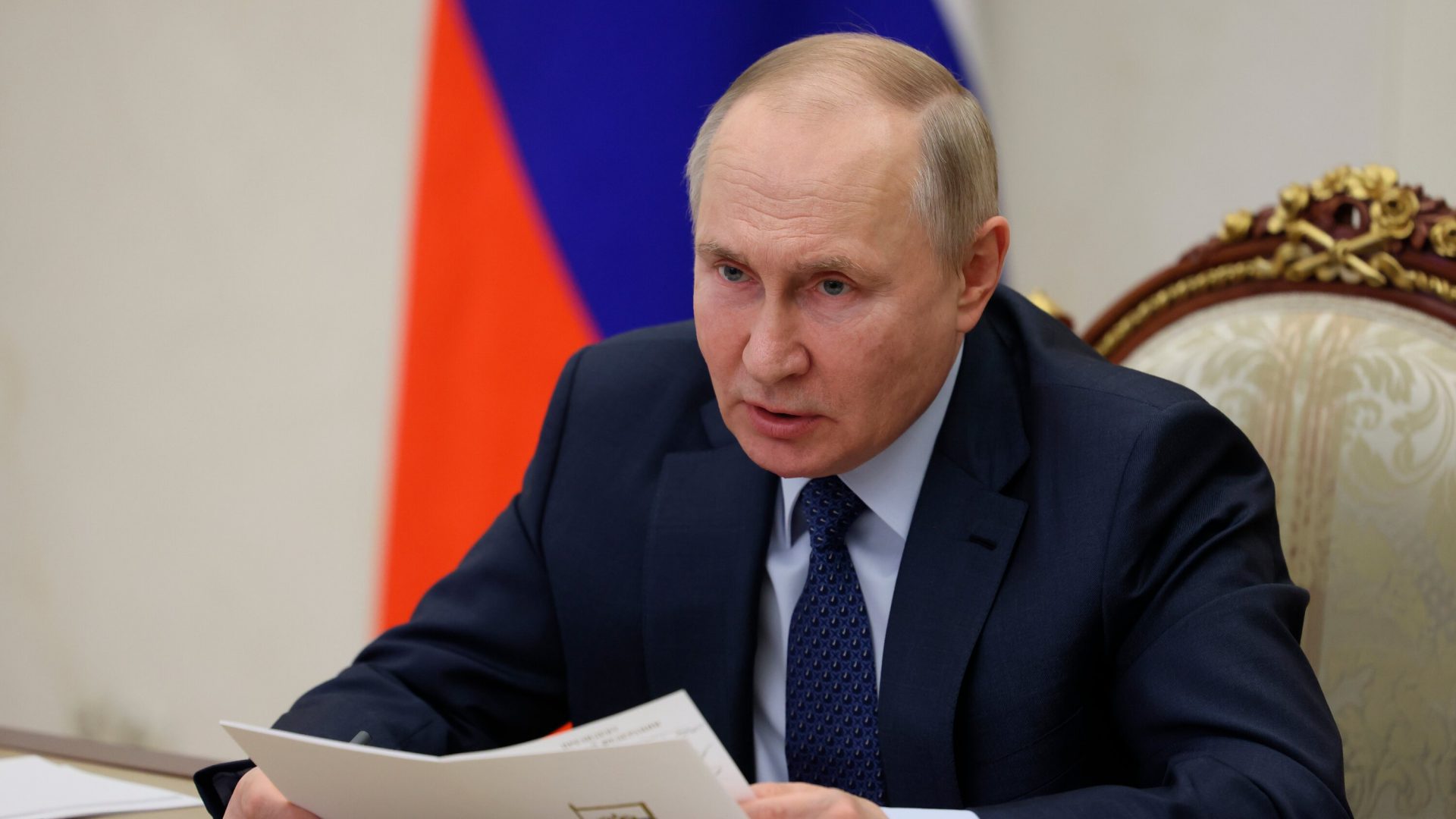The BRICS alliance could gain control of the majority of the world's oil and gas trade by including Saudi Arabia and the United Arab Emirates, which could lead to a shift away from the USD and the de-dollarization of the oil economy.
The Brics economic group, consisting of Brazil, Russia, India, China, and South Africa, is discussing the possibility of expanding its membership and promoting the use of local currencies for trade settlement, with aims to challenge the dominance of the US dollar, but analysts believe that the greenback is unlikely to lose its status as the international reserve currency.
Russian President Vladimir Putin stated at the BRICS Summit that the decline in the global role of the US dollar is an irreversible process, emphasizing the bloc's de-dollarization efforts.
Russian President Vladimir Putin criticized Western sanctions and called for member countries of the BRICS group to move away from the US dollar during an economic summit in South Africa, despite the arrest warrant issued against him by the International Criminal Court.
Brazil's President, Luiz Inacio Lula Da Silva, announced at the BRICS Summit that the economic alliance will officially abandon the US dollar for trade settlements, aligning with de-dollarization efforts and expanding to include six additional countries by 2024.
The BRICS summit is aiming to reduce reliance on the U.S. Dollar, as the coalition confirms new members including UAE, Egypt, Ethiopia, Saudi Arabia, and Argentina, and discusses the possibility of a new payment system and currency backed by gold.
The BRICS summit focused on increasing the use of local currencies for trade, but there were no discussions about a digital currency; however, three non-BRICS countries also announced plans to use local currencies instead of the dollar for cross-border trade.
BRICS is considering making local currencies the only accepted form of payment for oil and gas settlements, which could potentially shift global power from the West to the East.
The BRICS nations are divided on the issue of de-dollarization, as statements from the bloc's leaders indicated, despite discussions about the creation of a common currency to rival the US dollar.
The dollar is not likely to lose its status as the global reserve currency despite the expansion of the BRICS group of nations and their aim to find an alternative, as technology and not commodity-based currencies are expected to be the driving force in the future.
The BRICS expansion and their de-dollarization efforts have been met with a relatively calm response from the US, Germany, and the European Union, emphasizing the importance of countries choosing partnerships based on their national interests.
The residual impact of sanctions against Russia is causing divisions among the Group of 20 countries, with some nations resisting US-led efforts and forming alliances with Russia and China, while the BRICS nations are seeking to reduce reliance on the US dollar.
The BRICS alliance is considering the creation of a 'single unit account' as an alternative currency to the US dollar, in order to settle cross-border transactions without depending on a single currency or local currencies.
Developing countries, including members of the BRICS and ASEAN alliances, are actively seeking to reduce their dependency on the US dollar and promote their local currencies for global trade, with a total of 21 countries officially agreeing to ditch the US dollar in 2023.
The BRICS expansion, which includes countries like Saudi Arabia, the UAE, and Iran, has raised concerns in the U.S. and EU as it poses a threat to Western-dominated financial markets, while China's influence grows and the alliance aims for de-dollarization in global trade.
Developing countries, including the BRICS alliance, are looking to end reliance on the US dollar due to increasing debt and the threat of inflation, which could lead to a decline in the dollar's value and a rise in prices. Economist Peter Schiff warns of a tragic ending for the US dollar if other countries continue to move away from it.
The BRICS bloc, including countries like India, China, and Russia, is slowly reducing its dependency on the US dollar and using their local currencies for trade, which could potentially weaken the US dollar's position as the dominant global currency.

